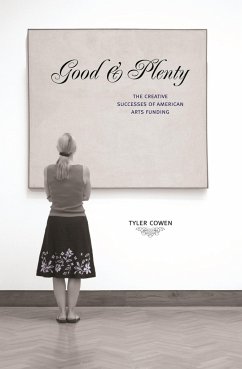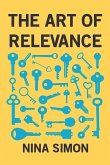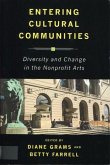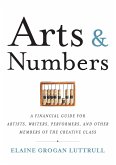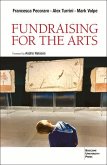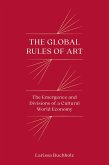"Taking up the question of how we think about policies toward goods that are both public symbols and economic products, Tyler Cowen's Good and Plenty demonstrates that the usual discussion of arts policy misses the point. If you focus obsessively on urine-dipped crucifixes subsidized by the NEA, you miss the government's role in encouraging many other symbols, from the Chicago Bears to Harvard. You miss the history of the WPA in the 1930s and the Voice of America in the 1950s, political art dwarfing the NEA. You will suppose mistakenly that arts policy in the United States is laissez-faire. Advancing economics into serious thinking about culture, Cowen's book is a pleasure and profit to read."--Deirdre McCloskey, University of Illinois, Chicago, author of How to Be Human (Though an Economist) "Nearly everything I have read on the government's involvement in the arts suffers from being little more than shrill advocacy. Tyler Cowen's Good and Plenty makes a refreshing departure by providing a calm and thorough analysis of the causes and consequences of government arts policy. The book offers a temperate, well-reasoned consideration of a broad range of related subjects, and is much more thorough than any other treatment I have read. It makes a very useful contribution."--David Galenson, University of Chicago, author of Painting Outside the Lines "Tyler Cowen is to be congratulated for tackling the bedeviled relation between 'art and beauty' as understood by the Western tradition and the 'liberal state' with its ethos, if not practice, of egalitarianism. As always, he delights in using hard data to prick the balloons of received opinion, especially the bad rap given to 'commercial culture.'"--Martha Bayles, arts journalist and professor at Boston College
Hinweis: Dieser Artikel kann nur an eine deutsche Lieferadresse ausgeliefert werden.
Hinweis: Dieser Artikel kann nur an eine deutsche Lieferadresse ausgeliefert werden.

